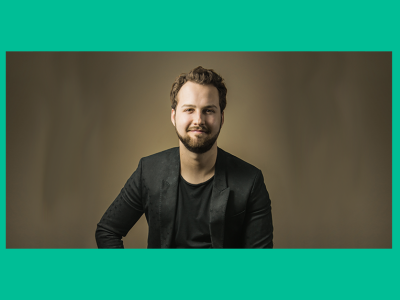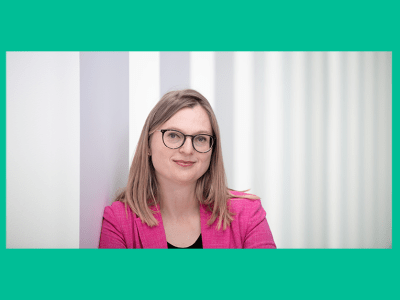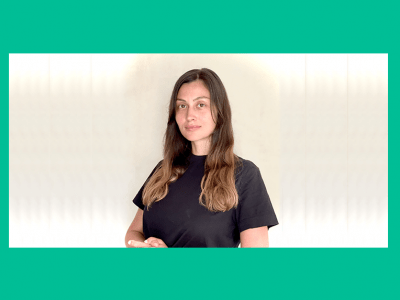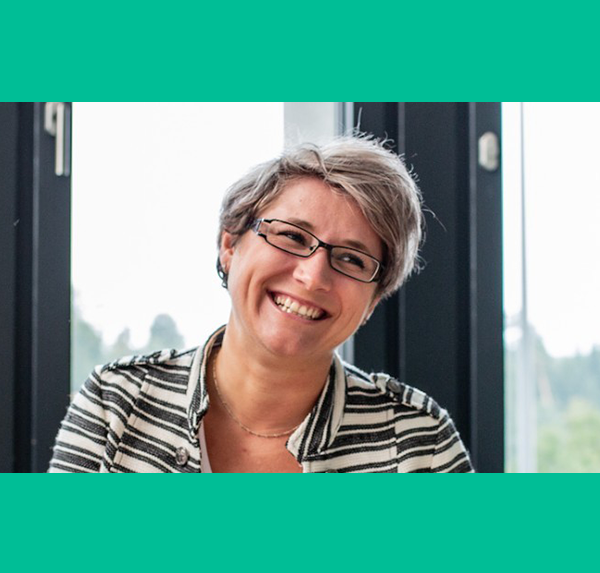EU Alumnus Mathieu Serres, IBM Program Manager
EU alumnus Mathieu Serres is originally from Carcassonne in the South of France. Following a recent promotion, he now lives in Morocco and works with IBM as a Program Manager.
Mathieu saw his career take off after completing his MBA at EU Business School. He has worked at IBM offices in Bucharest, Paris and Geneva, steadily acquiring greater responsibility. He credits his MBA at EU Business School for his initial employment at IBM, as well as for his considerable career progression.
A driven person with ambitious career goals, Mathieu has also been teaching himself to play the piano and speaks three languages: French, Romanian and English. Aside from career-associated relocations, he has also lived in Germany and India.
Mathieu told us about his work at IBM, his experience at EU Business School and how his MBA is helping his career dreams come true.
Can you tell us about your career journey, following your MBA?
After my MBA I moved to Romania to work with a friend there, but I was not happy in the job and applied to work at IBM.
My first position at IBM was in Bucharest as a Project Management Officer (PMO), an entry level support and administration role. In the second year I was put on a project working alongside six others, still with the same title but with more responsibility. The project manager was often absent so I had the chance to show what I could do. It can be really challenging in big organizations to find an opportunity to show what you’re capable of, so I was lucky. I got experience working directly with the client and on financial forecasts, which I then sent to the project CFO in Paris. The client really liked my work, so I was given greater responsibility.
After two years at IBM Romania, I wanted to leave the country but not IBM. I felt like two years was not enough and I could gain more experience, because when you’re in such a big organization it takes a lot of time just to understand how everything works.
I applied to IBM offices all over the world; Singapore, Sydney, Toronto, and they took me in Poland, in the small city of Wroclaw. But just as I was about to sign the contract, my manager in Paris, the finance manager, said she wanted me to come to Paris to do the financial forecasts for bigger projects. I signed my contract with IBM Paris officially as a project manager, but in fact doing more financial forecast tasks and working on big projects that meant I had visibility to people high up in IBM management.
After a year, having found and trained someone to replace me, I moved over to the delivery side of the business, which involved regular travel to IBM Morocco. And after a year and a half in the role, managing a team of 35 people including project managers, testers and analysts, I decided I wanted to move again. The project director I worked with in Paris was moving to Switzerland and said if I went there too, there would be a job for me.
It was exciting to be involved from the start of an important new project. In Geneva I was responsible for setting up the project management tools and processes for a new contract that involved outsourcing the IT system for a new client, a private bank.
Recently I moved again, back to the IBM offices in Casablanca. Having come so far in my career, it’s exciting to know that after my next promotion I could be reporting directly to the Country Manager.
How do you approach project management?
At IBM, when a project manager receives a project it’s already been sold by someone in sales to the client. That means there is a contract, sometimes 200 pages long, containing all the details the project manager needs. If you’re lucky, you start on a project before it begins so there’s time to go through the details and confirm anything that’s unclear with the commercial team, to make sure you are familiar with exactly what the client wants. And this is very important so that you can set expectations with the client of how the project will run, and what you each need to do to make it happen.
What essential qualities do you need to be a good a project manager?
First, you need to be a good listener. This will enable you to effectively cope with the number of emails you receive, the number of meetings, to understand what the client needs and listen to ideas from your team.
You also need to be organized so that when you’re working on a big projects with lots of different parts and delivery dates, you’re not stressed but able to create and follow a clear plan to make sure it all gets delivered.
What is the hardest project you have worked on in your career so far?
In Paris, the project I worked on involved managing a technical IT team and I do not have any hard IT skills or training. When members of my team would come to me with a problem, I had to ask someone else for help. There were specialists at IBM who supported me on these tricky technical aspects of the project, but I did not feel comfortable. When there was a conflict between the client and someone in my team I couldn’t help because I couldn’t check the code myself.
What was the most fun you’ve had working on a project?
The most fun I’ve had on a project was during my second year at IBM when I was the PMO on a project in Bucharest. We had a project in Paris to deliver and we didn’t have the skills required within IBM, so we hired six people who could do the work but none of them spoke French. In two weeks’ time we had to go to Paris to speak with the client, in French. So, they had classes for four hours a day plus an hour with me practicing conversation, going very fast so that they could get used to it. That was very fun and then all seven of us went to Paris for two weeks, came back to Romania for two weeks and then went back again for two weeks to France.

If you take seven people who don’t know each other, who just started at the same company at the same time and put them together in a hotel in France, you have a team. It was the best team building we could have had; the team worked fluently because we knew each other so well. It was a very, very good time, and we’re still friends and going to each other’s weddings!
What traits do you look for when choosing members of your team?
I look for someone who is smart, a fast learner and who is not afraid of going out of their comfort zone; someone flexible.
What was your favorite thing about studying at EU?
The guest speakers. Before I was at EU I was at university and the learning was only theoretical, but at EU, the teachers worked for big companies or were entrepreneurs; you could see that they were very experienced. So that was great, but the guest speakers were something else. You got to hear all about their job and the industry, which as a student who is unsure what career direction they want to go in was really amazing.
What advice would you give to students who want to start a career in project management or work for a big multinational like IBM?
Don’t be afraid to move. I had more opportunities because I started outside of my home country. If you are Spanish working in Spain, or German working in Germany, you have to find something else to differentiate yourself. If you are French in the UK and there are some jobs where you need to speak French or you need to know the culture, you have an advantage.
So travel, look somewhere else, at least at the beginning. If you want to go back to your home country I understand, but if you can spend one or two years abroad, not only to study but to work, that will definitely bring you a lot. I think it’s really important.
Accelerate Your Career With an MBA at EU Business School
If, like Mathieu, you are considering taking an MBA to boost your career opportunities, EU Business School has a course for you. We offer 11 specialisms from International Business to Global Banking & Finance, taught by an outstanding faculty of business leaders and entrepreneurs. Our experiential approach means you will graduate with a firm foundation of knowledge and theory, as well as insights and ideas from the cutting edge.

Header image source: “IBM logo” by “Patrick Finnegan” is licensed under CC BY 4.0









